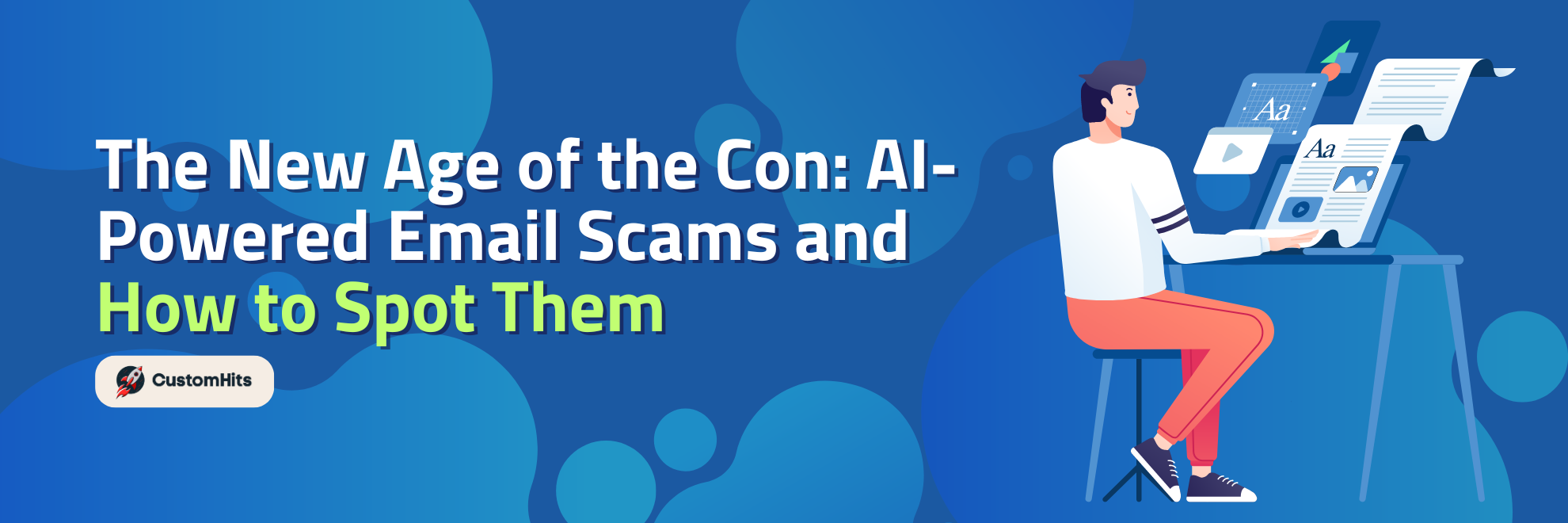

Overview
Content
Scammers have always been a cunning bunch, adapting their tactics with the times. Now, they're wielding a new weapon: artificial intelligence (AI). But fear not, this isn't some high-tech heist from a sci-fi movie. This scam is more about exploiting a lack of knowledge than fancy algorithms.
The Bait and Switch: Fake AI for Free Emails
Imagine scrolling through social media and seeing an ad for a revolutionary new AI tool that can (insert incredible promise here). Maybe it analyzes your handwriting to predict your future or write a novel in the style of your favorite author. Intrigued, you click the link, eager to experience the future. You land on a sleek website, buzzing with AI jargon. All you need to do is enter your email address to get started!
Hold on a second.
This is where the scam comes in.
"There's no fancy AI here. The website is a cleverly designed facade, created in minutes with website-building tools. The only real purpose is stealing your email address."
Why Your Email is the Prize
Think of your email address as a digital goldmine. It holds the key to your online identity, and scammers know this. They can sell these email lists in bulk on the dark web, a hidden corner of the internet. Marketers with dubious products and services then buy these lists to bombard you with spam.
History Repeats Itself, With a Tech Twist
Scams have been around since the dawn of commerce. Remember the Nigerian Prince emails of the early 2000s? This is a similar tactic, preying on the excitement around a new technology (AI) and the victim's lack of understanding of how it works.
How to Avoid the AI Mirage
Here's how to spot these email-grabbing scams:
- Look for Red Flags: Is the website missing a privacy policy or an accessibility policy? Is it poorly indexed by search engines, appearing only through suspicious ads? These are all signs of a hastily thrown-together scam.
- Think Before You Click: Does the offer sound too good to be true? Does it require minimal effort on your part for a huge reward? If so, it probably is.
- Do Your Research: If you're unsure about a website, take a second to search for reviews or information about the company. A quick Google search can often reveal a trail of complaints.
Remember: legitimate AI companies won't resort to shady tactics to collect emails. They'll offer clear value propositions and have a transparent online presence.
By staying vigilant and using a healthy dose of skepticism, you can avoid falling victim to these new-age cons. The future of AI is bright, but let's not let scammers cloud the potential with their email-harvesting schemes.
Conclusion
While there isn't a single, definitive report outlining the widespread use of AI in crafting these email scams, there are signs pointing towards this trend:
- The Rise of Generative AI: AI advancements in language generation make it easier to create personalized emails that sound human-written. Scammers can leverage this to craft emails that target specific demographics or interests, making them seem more legitimate.
- Increased Automation: AI can automate tasks like sending mass emails and personalizing content based on data scraped from the web. This allows scammers to launch large-scale campaigns with minimal effort.
- Focus on New Technologies: Scammers are known to exploit the hype surrounding new trends. With AI being a hot topic, it's natural for them to capitalize on people's lack of understanding of the technology.
Remember: When searching online, be cautious of websites promising "magic bullet" solutions against AI scams. Stick to reputable sources and practice good online hygiene to stay safe.
If you need more advice on this, please feel free to drop me a line, and I will give you a complete breakdown and can even show you proof that this issue is very real. These scammers are already giving AI a really bad name. BE VIGILANT, BE SAFE
Don't get duped!!!!
